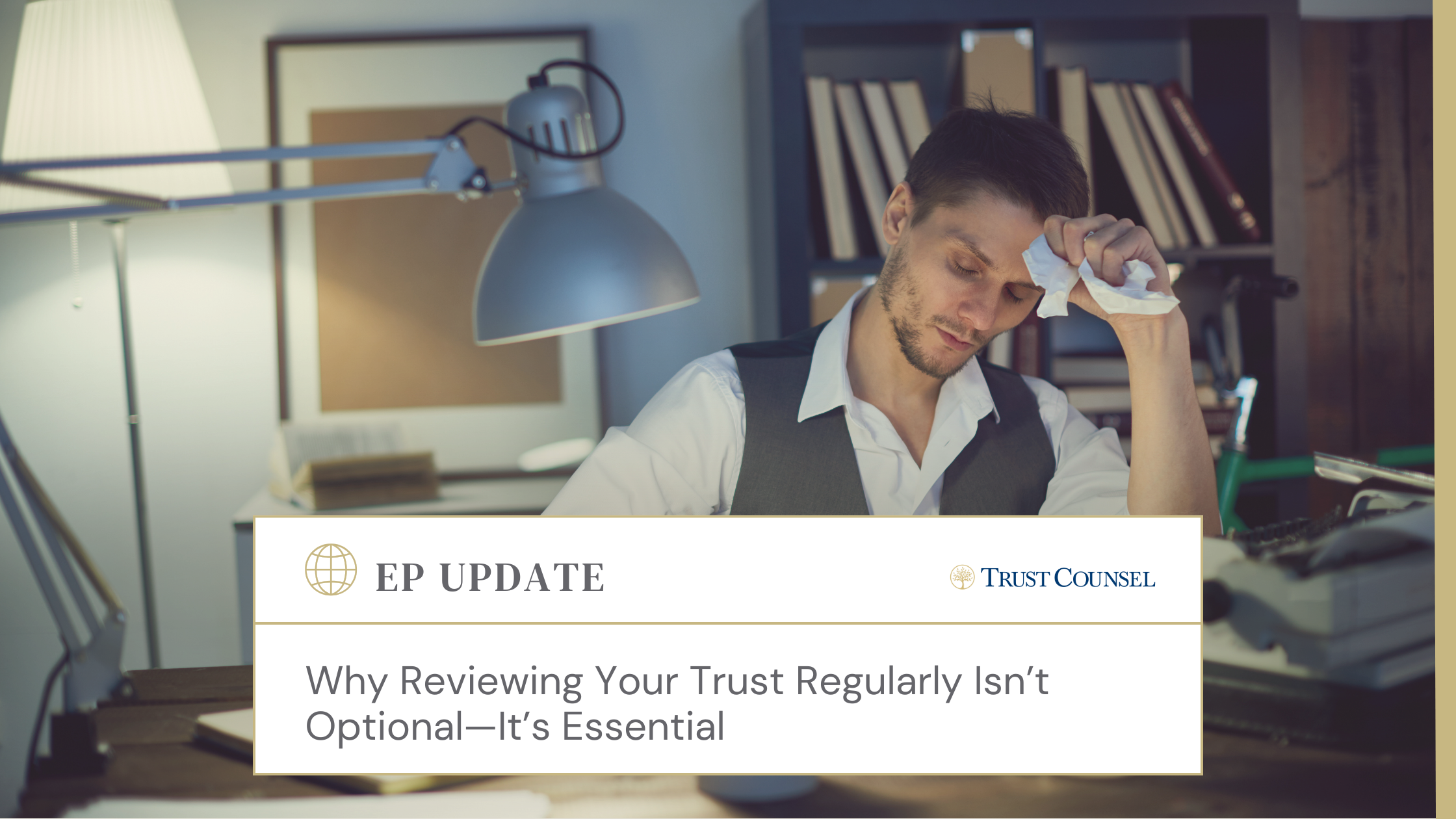Your estate plan will need a few updates if you’re getting divorced. While you may not be thinking about dying yet, having an estate plan that reflects your new reality will help protect your assets and ensure the people in your life get what they need.
You and your soon-to-be ex-spouse shared many things: a home, cars, children, and bank accounts. And even if you don’t have estate planning documents like a will or a trust, now is a great time to get started.
Here are six moves to make on your estate plan when you’re getting divorced:
#1 Update Your Will or Trust
Is your spouse the named executor of your will? Are your assets currently held in a trust with your spouse as the designated trustee? If your state allows you to change your will or trust during divorce, you should consider updating these documents immediately.
Although the need to settle your estate could be many years down the road, with the chaotic divorce process and ever-present stresses of everyday life, there’s no telling when you’ll finally get around to it. And the last thing you’d want to do is leave your assets in the wrong hands. You may consider revoking and creating new documents depending on your situation and the assets involved.
#2 Select Guardians for Minor Children
If you have children, your impending divorce likely has you thinking about child custody, parenting plans, and visitation schedules. But you should also consider who you would trust to step up in your place if you were to pass away. In most cases, if a custodial parent dies, the children’s living parent will retain custody.
Suppose your ex-spouse is abusive, unstable, or otherwise unfit to take over these duties. In that case, an estate planning lawyer can help you designate an alternate guardian for your children in your will. Remember that a will does not trump your spouse’s parental rights.
#3 Change Your Beneficiary Designations
Beneficiary designations are a critical part of your estate plan that may go overlooked. Do you have life insurance policies? A savings account? Retirement? When you opened these accounts, naturally, you might have listed your spouse as the beneficiary. Without amending these beneficiary designations, you risk having your hard-earned money mishandled upon your death.
Unfortunately, modifying beneficiary designations before your divorce may also be governed by state law. Most states place an automatic restraining order on changing these assets before your divorce is finalized.
#4 Reevaluate Your Health Care Proxy Designation
The healthcare designation form(or healthcare power of attorney), together with your living will, are the documents that state who are the persons who can make major medical decisions if you cannot do so yourself. They tell doctors whether to pull the plug, which surgeries you would want, and the types of tests or medical treatment to administer.
It goes without saying that this is an enormous amount of responsibility that directly affects your quality of life and should not be taken lightly. If you’re getting divorced, consider updating this document and assigning a new agent to act on your behalf.
#5 Choose a New Durable Power of Attorney
Like a healthcare proxy, a durable power of attorney makes essential decisions on your behalf. If you become ill, injured, or cannot make decisions independently, your power of attorney steps in. A financial power of attorney can collect money on your behalf, decide what happens to your assets, and sign for things in your absence.
When you’re in such a vulnerable state, you need someone in your corner acting in your best interest. If you currently have your spouse listed as a power of attorney, you might want to change that.
#6 Review Your Prenuptial (or Postnuptial) Agreement
Did you and your spouse sign a prenuptial or postnuptial agreement? If so, you’ll want to revisit these before signing your divorce papers. A prenuptial agreement is a contract entered into before marriage, while a postnuptial is signed during or shortly after. Both of these documents address how assets will be divided if you divorce.
These agreements benefit your estate plan because Florida is an equitable distribution state. These agreements will help guide asset division, so you walk away with your financial freedom intact.
Review Your Estate Plan Post-Divorce
Give your estate plan another once over after your divorce is finalized. An estate planning attorney can review your plan checking for errors and ensuring your goals are correctly drafted.
But you don’t have to wait until your spouse decides to divorce and then scramble to make these changes. The best time to ensure that your estate plan is ready for anything is right now—when you have control over all the details and can keep them up-to-date as life happens.





